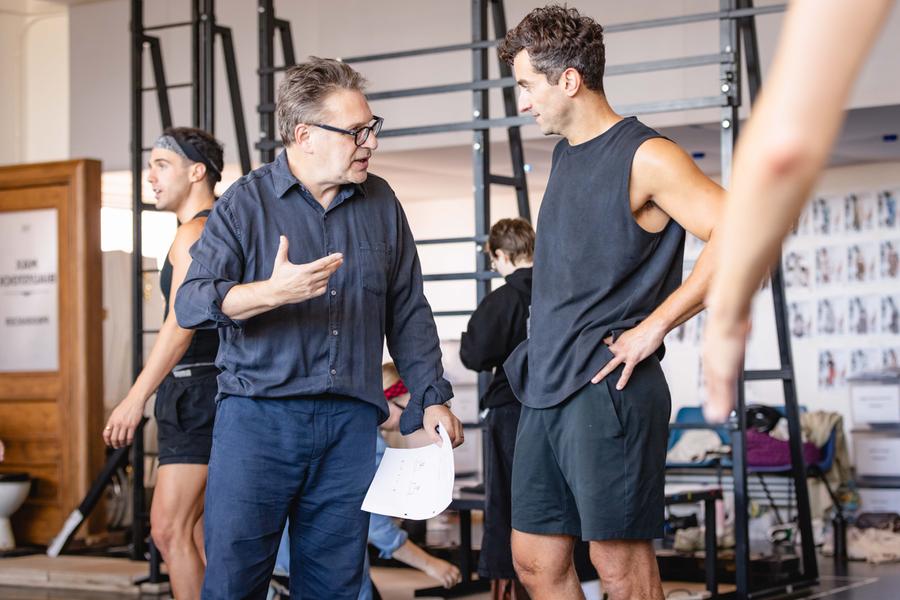Patrick Marber is currently at the forefront of London’s theatre scene, directing a much-anticipated production of Mel Brooks‘s musical The Producers, which recently transferred to the West End. Known for his acclaimed play Closer, Marber’s latest endeavor comes during a time of rising antisemitism, making the satirical nature of the show particularly relevant.
Seated in a rehearsal space in east London, Marber reflects on his career and the gravity of his work. The production features a cast that includes Bob Odenkirk, Kieran Culkin, and comedian Bill Burr, showcasing a revival of David Mamet‘s Glengarry Glen Ross, alongside his recent success with Tom Stoppard‘s Leopoldstadt, for which he won a Tony Award.
The timing of The Producers is striking, opening soon after the Unite the Kingdom march in London. Marber acknowledges the importance of satirizing the far-right, stating, “The film [released in 1967] was 20 years after the end of the war. I think it would have been shocking and dangerous back then.” He notes that the current global political climate has made the themes of the musical feel “relevant and potent.”
Marber has a unique perspective on his identity as a director, jokingly referring to himself as the “Jew director.” His recent works, including Howard Katz and adaptations like What We Talk About When We Talk About Anne Frank, showcase his focus on Jewish themes. He emphasizes the importance of portraying his characters authentically, especially in The Producers. “I wanted to convincingly portray Max and Leo as Jews,” he explains.
As he delves into his heritage, Marber expresses a newfound interest in his Jewish identity. “I’d have loved to have been able to walk these streets when they were Jewish and feel what that was like,” he remarks. He attributes this shift to a contemplation of mortality, saying, “Death… the imminence; the contemplating of.” This introspection leads him to consider joining a synagogue, expressing a desire for connection to his roots.
While discussing the increasing hostility toward Jews, Marber displays a sense of humor. “I think people have a right to hate Jews,” he quips, adding that self-mockery is a celebrated aspect of Jewish culture. He believes that this characteristic allows for a more open dialogue about identity and acceptance within the broader society.
Reflecting on his upbringing in Wimbledon, Marber acknowledges the challenges of being part of an ethnic minority. He describes feeling less than fully integrated into English society, stating, “Home is where my wife and children are.” His three sons, who are part Jewish, are increasingly aware of their heritage, especially in light of occasional public encounters related to their appearance.
Marber’s outlook on these experiences is pragmatic. “To experience the hate of strangers is not the worst thing in the world,” he reassures. “The worst thing is to be beaten up by them.”
As The Producers continues its run at the Garrick Theatre, Marber’s journey through identity, humor, and the complexities of modern society resonates strongly within the current cultural landscape. The production not only entertains but also provokes thought about the intersection of art, identity, and societal issues.





































































